11. Musical Alchemy.
It is a feat of true musical alchemy to take subjects so full of pain and horror as the expulsion of the Jews from Russia
and the rise of the Nazi party and incorporate them into Broadway musicals designed to entertain. We first see this relatively
trivially in The Sound of Music (1959), as the dramatic finale to a Cinderella romance that returns to the operetta
tradition with which this course started.
Despite radical differences in style, both Fiddler on the Roof (1964) and Cabaret (1966) bore deeply into their
tragic subjects, the one with warm humanity, the other with edgy satire. Both deal with inflection points in history when old
assumptions must change. Both ask what moral qualities enable some to survive these changes, while others look on and do
nothing. Both move the Broadway musical into uncharted new territory, and both have been preserved in iconic films of unusual
power. rb.
The script, videos, and images will be posted immediately after class.
VIDEO LINKS
All the clips shown in class are available on YouTube; see below for notes on the specific shows. My own animated titles
can be found here. *Asterisks indicate videos not shown
in class. rb.
• The Sound of Music: Although there are many individual clips on YouTube, the full film must be bought or
rented, for example on Amazon Prime. The Salzburg concert scene that I played comprises two separate YouTube clips, both
listed below. I have also added a link to a negative but very interesting article from The Paris Review: "The Empty
Nostalgia of The Sound of Music."
• Cabaret: Although there are many individual clips on YouTube, the full film must be bought or
rented, for example on Amazon Prime. The closing scene that I played comprises two separate YouTube clips, both listed below.
The stage production by Sam Mendes occurs in several clips, from the original or one of its many revivals; most of
these are in poor quality. Of the two videos that say they are complete, one is actually a series of excerpts, and the
other, though excellent in quality, is all filmed from a single camera in a balcony, and thus useful as an archive only.
• Fiddler on the Roof: The complete movie is currently available on YouTube, and all the listed
clips come from that. I have also added the documentary that I mentioned in class, Fiddler: Miracle of Miracles. It
is 96 minutes long, but strongly recommended; it is the kind of lecture I wish I could have given myself!
| |
|
|
|
|
|
| IMAGES |
The thumbnails below cover the slides shown in class, though
there may be a few small discrepancies. Click the thumbnail to see a larger image.
Click on the right
or left of the larger picture to go forward or back, or outside it to close. |
 | |
 | |
 | |
 | |
 | |
 | |
 | |
 | |
 | |
 | |
 | |
 | |
 | |
 | |
 | |
Here are brief bios of the artists, composers, and writers considered in the class, listed in order of birth.
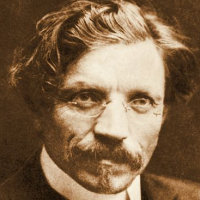 |
Sholem Aleichem, 1859–1916. Yiddish writer.
Born Solomon Naumovich Rabinovich in SW Russia (Ukraine), he worked as a teacher before making his living as a writer under the pseudonym Sholem Aleichem; he is credited with establishing the viability of Yiddish as a literary language. He fled Russia in 1906, coming first to NYC, then Geneva, then back to New York. In the West, he is best known for the stories that became the basis of Fiddler on the Roof.
|
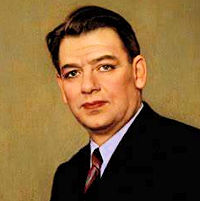 |
Oscar Hammerstein II, 1895–1960. American lyricist.
Oscar Hammerstein's father, a German immigrant, was manager of the Metropolitan Opera and active also on Broadway. His son quickly established a career as lyricist, working with Rudolf Friml, Sigmund Romberg, Jerome Kern (Show Boat, 1926), and a very long partnership with Richard Rodgers from Oklahoma! (1943) to The Sound of Music (1959).
|
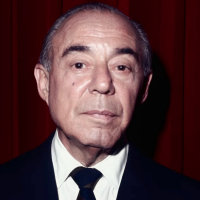 |
Richard Rodgers, 1902–79. American composer.
The composer of 43 Broadway shows, Rodgers virtually defined the American musical in the middle decades of the 20th century. His collaboration with Lorenz Hart produced witty works such as On Your oes (1936) and Pal Joey (1940), but his collaborations with Oscar Hammerstein II, beginning with Oklahoma! in 1943, brought a new kind of drama, developing a single narrative line and focusing more on character.
|
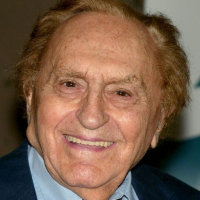 |
Joseph Stein, 1912–2010. American playwright.
Born in NY of Polish immigrant parents, Stein worked as a psychiatric social worker while writing comedy on the side. Working on the radio series Your Show of Shows alongside Sid Caesar, Woody Allen, Mel Brooks, and others gained him access to Broadway, where his best-known hit was Fiddler on the Roof (1964), his adaptation of stories by Sholem Aleichem.
|
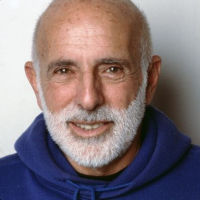 |
Jerome Robbins, 1918–98. American choreographer and director.
Beginning his career as a dancer and later choreographer with the American Ballet Theatre, Robbins later joined forces with Balanchine in the New York City Ballet. While he created numerous ballets in the classical tradition, his career on Broadway and in film is at least as important, including his work on West Side Story in both media.
|
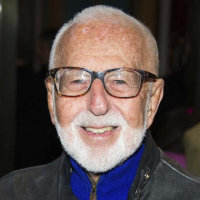 |
Joe Masteroff, 1919–2018. American writer.
Masteroff, the son of Jewish immigrant parents, graduated from Temple University before serving in the US Army in WW2. Among his many plays and adaptations, he is best known for the book of Cabaret (1966), which became the musical by Kander and Ebb.
|
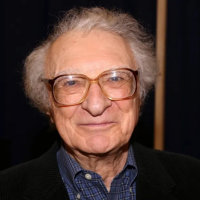 |
Sheldon Harnick, 1924–2023. American lyricist.
Although Harnick earned a degree in music from Northwestern, his greatest contribution was as a lyricist, especially in partnership with Jerry Bock, producing the successes Fiorello! (1959) and Fiddler on the Roof (1964), and several others.
|
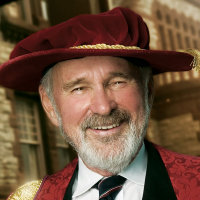 |
Norman Jewison, 1926–2024. Canadian filmmaker.
Born in Toronto, Jewison worked in Canadian television before moving to the US in the later 1950s. His films include The Thomas Crown Affair (1968), Fiddler on the Roof (1971), Jesus Christ Superstar (1973), and Agnes of God (1985). Despite his last name and fame for Fiddler, he was not Jewish.
|
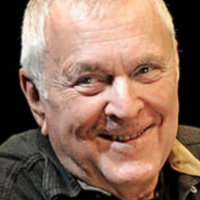 |
John Kander, 1927– . American composer.
Born in Kansas City, Kander studied music at Oberlin and Columbia, then worked in summer stock. While serving as rehearsal pianisy on West Side Story, he met Jerome Robbins who encouraged his Broadway careers, which produced such successes as Cabaret (1964) and Chicago (1975), both in partnership with Fred Ebb.
|
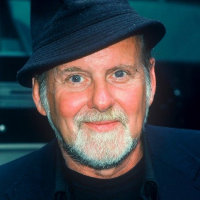 |
Bob Fosse, 1927–87. American choreographer.
Bob (Robert Louis) Fosse was a pioneering choreographer and later director, noted especially for jazz dance. His choreographic work was first seen on screen in a duet he danced with Carol Haney in Kiss Me, Kate in 1953. He went on to choreograph numerous Broadway shows from The Pajama Game (1954) to Chicago (1975) and direct movies including Sweet Charity (1969) and Cabaret (1972).
|
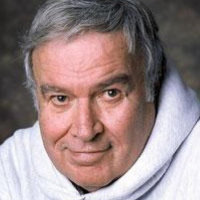 |
Fred Ebb, 1928–2004. American lyricist.
After graduating from New York University and Columbia, Ebb began writing song lyrics for a number of artists, but his greatest success came in partnership with John Kander, producing Cabaret in 1964 and Chicago which did not do so well in its 1975 premiere but was phenomenally successful in its 1996 revival.
|
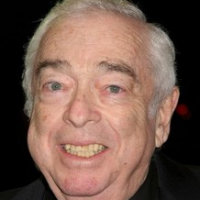 |
Jerry Bock, 1928–2010. American composer.
Bock began writing musicals while a student at the University of Wisconsin. His partnership with lyricist Sheldon Harnick produced the successes Fiorello! (1959) and Fiddler on the Roof (1964), among several others.
|
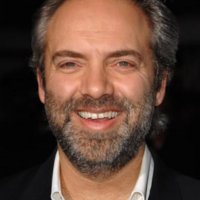 |
Sam Mendes, 1965– . British director.
Sir Sam Mendes sprung into prominence in the late 1980s, with productions at the Chichester Festival and the West End. In 1990, he was appointed Artistic Director of the Donmar Warehouse, and oversaw its transformation into the most innovative theatre on the London scene; his celebrated 1993 production of Cabaret was created there. In Hollywood, he won the Best Director Oscar for American Beauty (1999). He also directed the James Bond films Skyfall and Spectre.
|




























